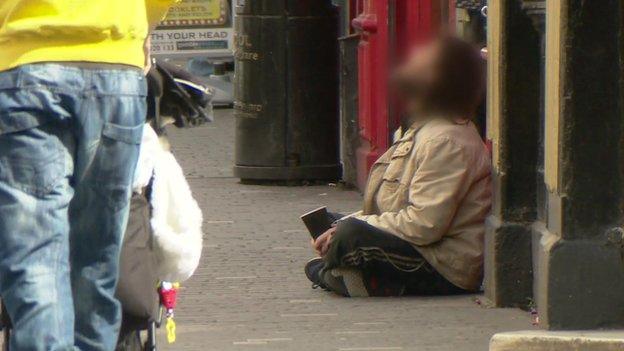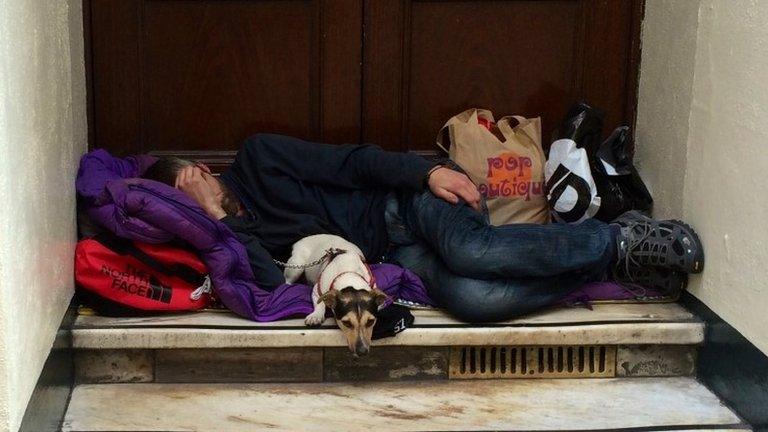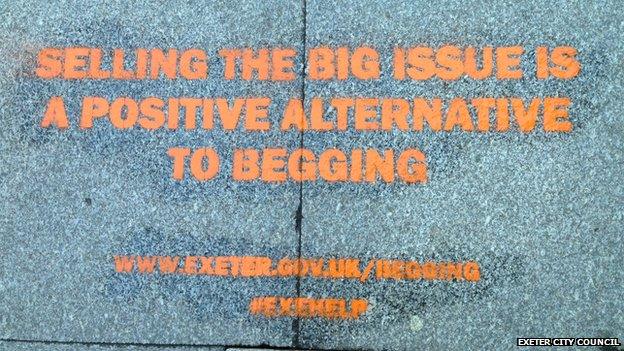Most arrested beggars not homeless, police figures suggest
- Published

Fewer than one in five people arrested for begging in England and Wales last year were homeless, suggest police figures obtained by BBC Breakfast.
Freedom of information figures from 34 of 43 police forces showed 1,002 people arrested for begging in 2014 - of whom 199 were legally defined, external as homeless.
Big Issue founder John Bird said people with chaotic lives need more support.
"It's easy to get people out of the streets. But it's not easy to get the streets out of people," said Mr Bird.
Rough sleepers
Mr Bird said finding accommodation was often only part of the problem for former rough sleepers, and was critical of many official attempts to tackle the issue.
The legal definition of homelessness, used by the police, says someone is homeless if they have no accommodation they are entitled to occupy - or if the standard of their accommodation is so bad they cannot reasonably be expected to occupy it.
Jon Sparkes, chief executive of the charity Crisis, told the programme the statistics risked exacerbating the problem for the people in most need of help.
"Clearly there are different groups - some people, it may be organised; some people, they may have some kind of addiction.
"Some people might be not homeless but living in real poverty - and of course then there are people who are homeless as well."
He said the figures could give the people in real need "a bad name in the eyes of the public - and they are then less likely to get that lifeline, that moment of kindness that they really need".
The highest numbers of arrests last year were made by police in Merseyside and the West Midlands.
Merseyside Police - 243 arrests for begging, 14 people were legally defined as homeless
West Midlands Police - 218 arrests for begging, 68 people legally defined as homeless.
Robbie tells the BBC about his 10 years sleeping rough
Robbie, who is homeless and has lived on Liverpool's streets on and off for 10 years, spends most nights in a hostel but says sleeping rough can be a way of making money without actually begging.
"You can't get arrested if you just lie on the street doorway and people walk past and feel sorry for you and give you money. But if you don't ask the person for money, you can't get arrested."
New powers
A Home Office spokeswoman said the government had given police and local authorities "a range of new and flexible powers to tackle anti-social behaviour, including begging, which is a criminal offence."
Since 2010 the government has made over £500m available to local authorities and voluntary groups to prevent and tackle homelessness, the spokeswoman added.
"Our £20m Homelessness Transition Fund has supported the roll-out of No Second Night Out across England, ensuring more rough sleepers are found and helped quickly so that they do not spend more than one night on the street."
- Published30 September 2015

- Published13 May 2014
